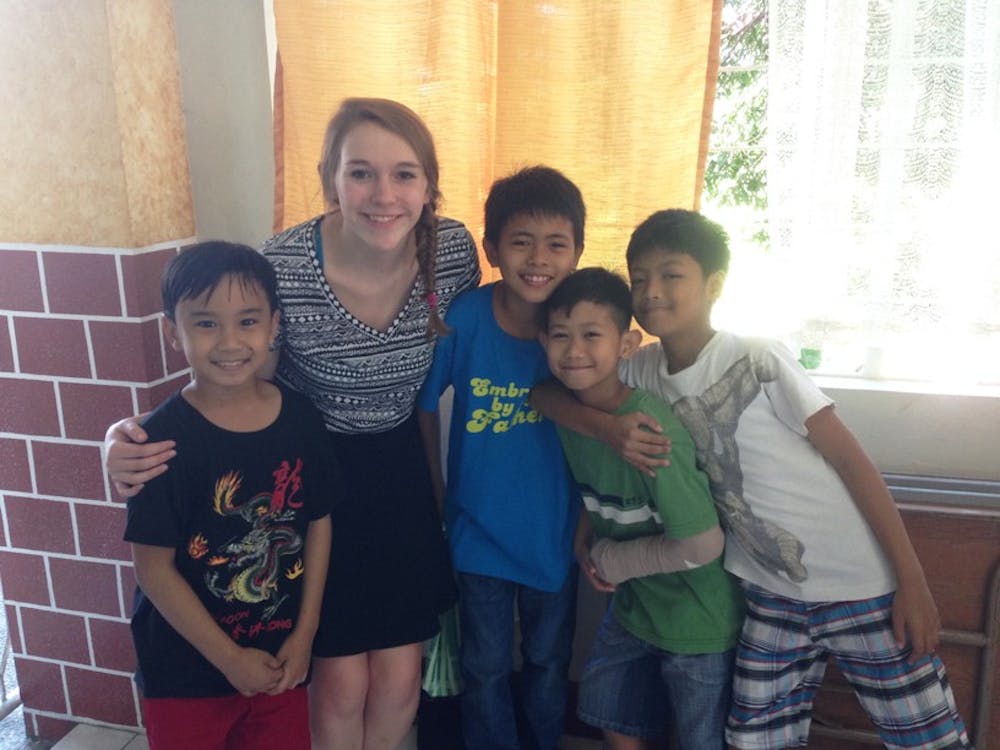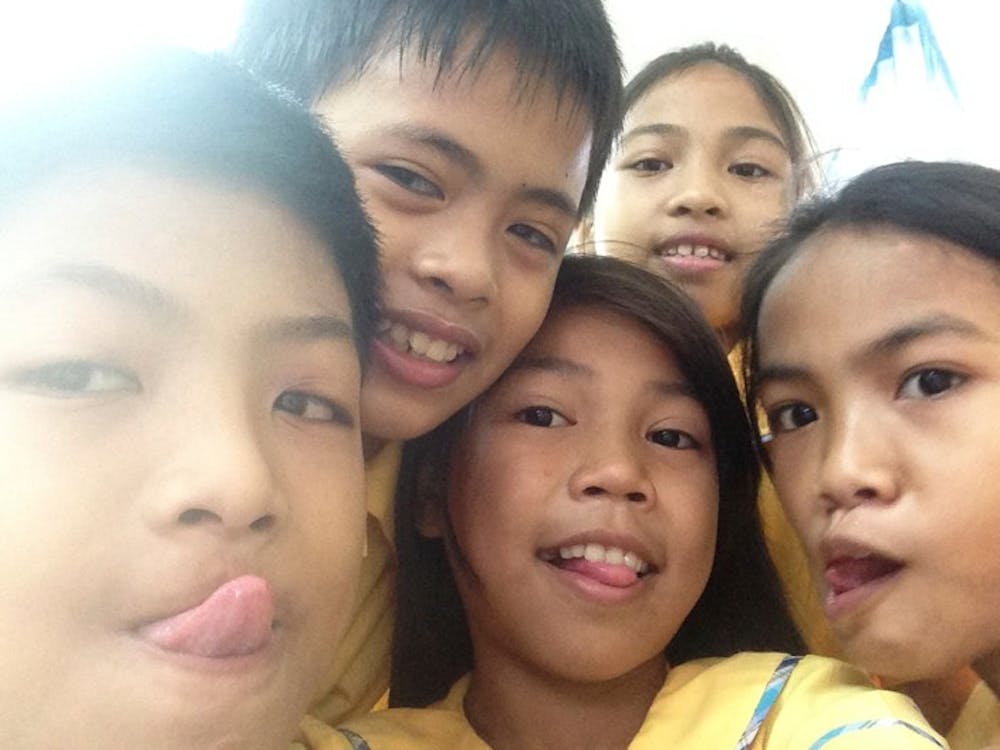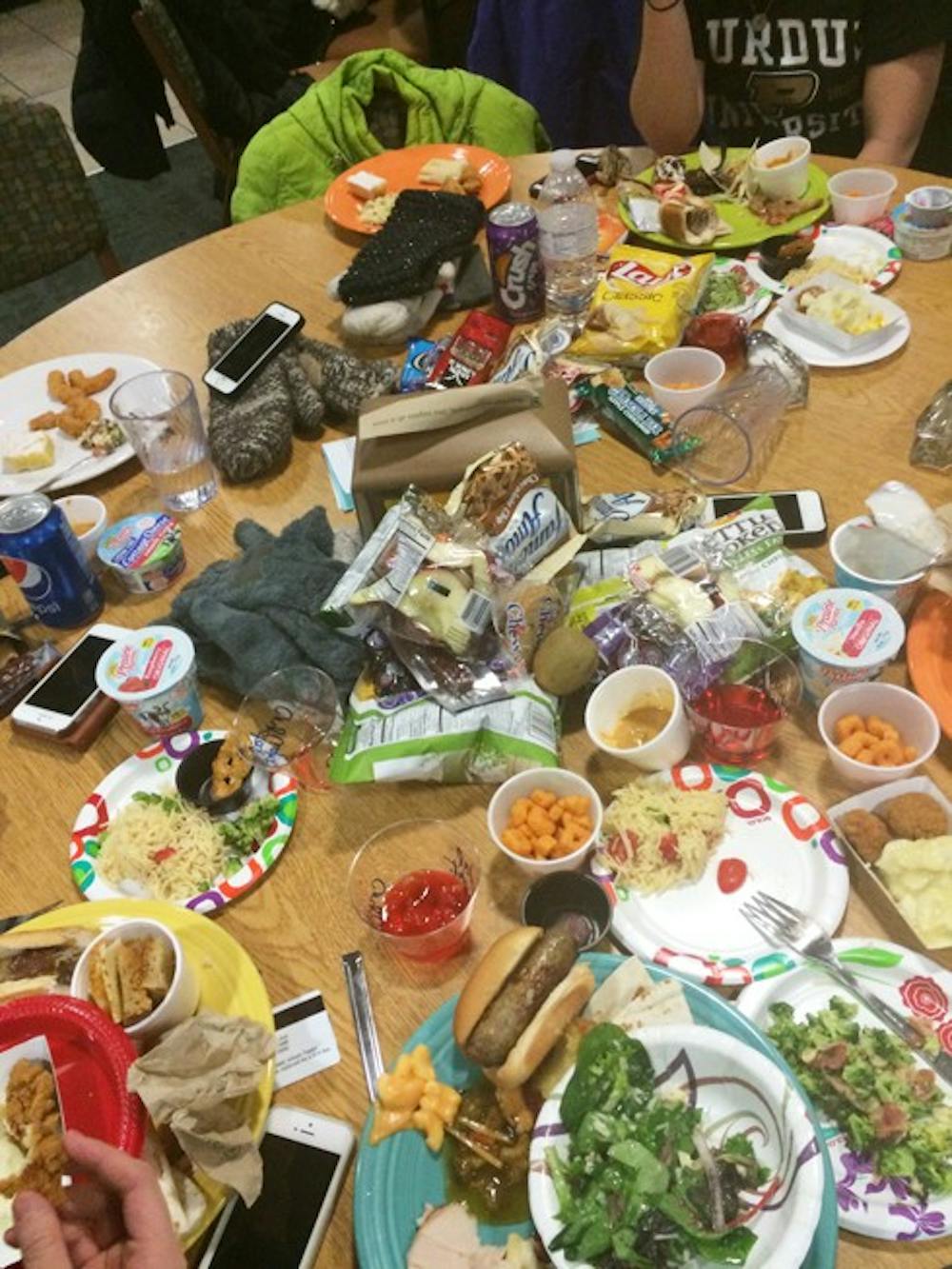By Erin Fuhr and Lindsay Robinson | Echo


They gave all they had and more: an eager hand to hold, a smile, a goofy selfie face. All they asked for in return was a human jungle gym and their student teacher's undivided attention. Taylor's elementary education students gladly provided both.
A group of 22 elementary education majors journeyed to the Philippines over J-term to receive class credit while volunteering at the Cuatro Christian School in the Cuatro village of Rizal. However, the experience was worth so much more than credit hours.
The group divided into teams, and each team worked with different grade levels. Students partnered with Filipino teachers, teaching lessons and coming up with lesson plans.
Sophomore Rachel Reisler helped teach third grade. She described how the kids would surround her with hugs. They constantly wanted to be around her, hanging on her arms and waist.
One girl would poke Reisler's arm and laugh at how her skin would stay white where her fingers had pressed.
"They would be . . . wanting to jump and climb all over you," sophomore Caroline Walsh said.
Walsh taught kindergarten, and interacting with the younger kids proved to be difficult at times.
"The mornings were really the challenging parts of my day," Walsh said. "(For) a lot of kids, I had no idea what their home life was like, but there were some really violent ones . . . I could just tell their environment at home was much different than what I'm used to. Because these kids just see violence as normal."
During her time working with the kindergarteners, Walsh grew particularly attached to a special needs student.
"He just couldn't communicate," Walsh said. "He loved attention, but I think he didn't even fully understand what was appropriate and what was inappropriate. There were days where I would have to stop him several times from climbing out the window."
Learning to love a student who had been ignored by the teacher and the rest of the class due to his disability helped Walsh grow even more.
"It's like I had this new perspective, that I loved him so much. He knew that I loved him too. Kids anywhere can teach you that. They just adore you . . . . That's why it's so much easier for me to deal with them, even if they're being picky. I just know in their heart they just love so deeply."
Walsh later learned that the little boy who kept climbing out the window finally learned how to spell his name.
Another crucial part of the team's experience was providing food for the children and their families outside of the classroom.
"We would go into neighborhoods, and we had this big bin of porridge-looking stuff," Rachel said. "And you'd yell 'Feedings! Feedings!' and kids, adults come running out with bowls, cups anything they have and you pour it in there."
It was hard for the students knowing that these kids went back to difficult home lives. Interacting with the kids in the classroom was much different than seeing what it was like when they went back to their houses.
"I see them in their cute little uniforms in school and they look put together. But when they're in their home environment . . . their homes are all shacks. I'm glad they don't know where I live. I lost a little bit of respect for myself, just seeing like these kids are so joyful and so grateful for what they have," said Walsh.
Those students who'd never been on an overseas mission trip before were extra grateful for the leadership of Cindy and Stan Tyner, the education professors who have led the trip for the past three years.
"Dr. Tyner-we call her Momma T because she is a mother to us," Reisler said. "She takes care of us. A lot of us got sick, and she was a mom. She was superwoman honestly. She did everything for us."
The Tyners' experience with the country and its people helped them provide the wisdom and leadership the students needed in order to have an impact on the kids they were serving. The Tyners demonstrated love to the Filipino people from the start, setting an incredible example for the education students under their leadership.
"They're very knowledgeable, and they have such a heart for the Filipinos. They've gone three times with a trip and they've been back since," Reisler said. "You can just see it in their actions toward these people. I mean, they love them."
Three weeks might not seem like enough time to alter a worldview, but for many students it was. In that month, the group of students witnessed and understood something that some of us may never learn firsthand. Cindy Tyner recalled the sheer joy and contentment the Filipino people reflected in the ways that they lived their simple lives.
"They had nothing, but they were the happiest people," Cindy reflected.
When the students returned to the U.S., they not only carried with them three more class credits, but also a newly-gained perspective on what it means to be truly joyful and generous.





